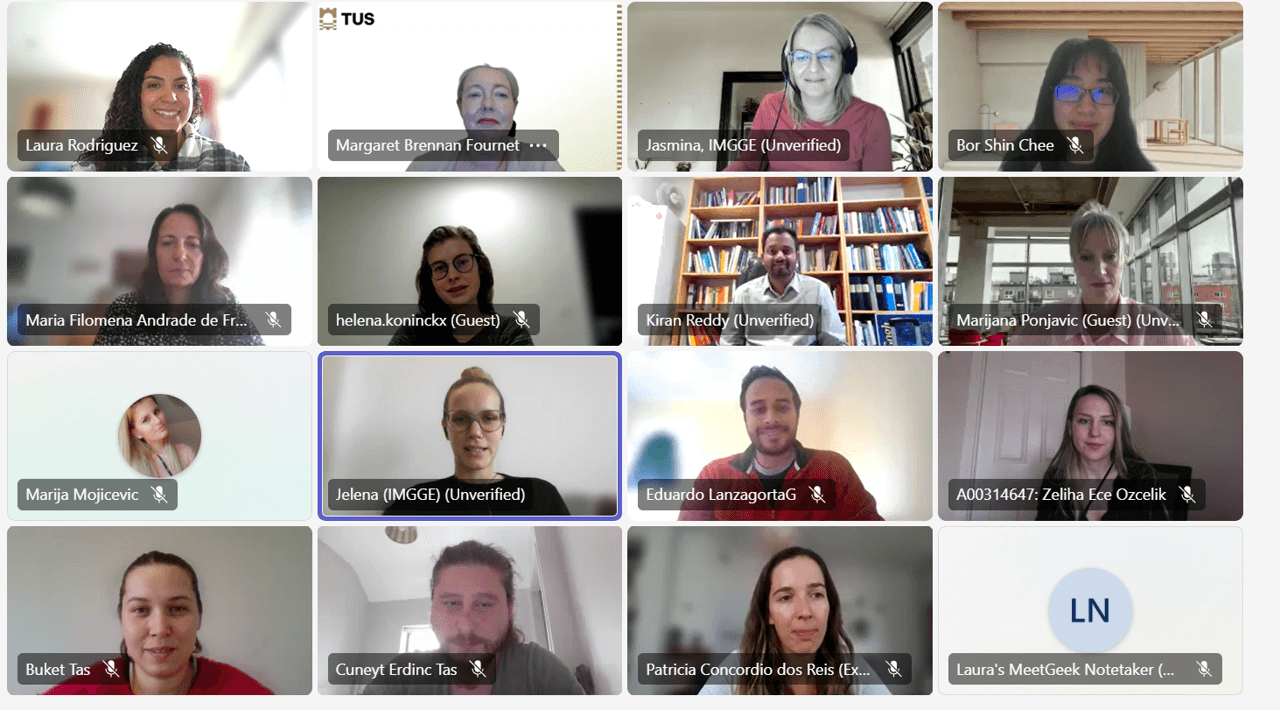Sixth EcoPlastiC Steering Meeting

The sixth online EcoPlastiC Steering Meeting (SM) took place on 4 October 2024 where five EcoPlastiC partners presented the latest achievements within their Work Packages (WPs) and made further plans for Year 3, the final year of the project.
Within WP2, TUS reported that high PET monomer yields by green chemical processes were obtained, bacterial nanocellulose (BNC) production from plastic waste hydrolysates containing PET was achieved and enzymatic degradation of the PET-containing waste streams was completed.
Within WP3, both AVE and NOVA presented updates. AVE presented a comparison of results for experiments carried out in mixed aerobic cultures with REXed PET, REXed metalised PET and low Na-REXed metalised PET, where lower Na-concentration had a positive impact on the conductivity and could positively affect the growth rate. NOVA screened 39 strains and selected 7 based on their ability to completely degrade TPA. Then, 4 strains were selected to enhance the process for PHA production. They also assessed a new microbiome from a municipal solid waste treatment plant and results showed good TPA removal capacity with over 70% efficiency and accumulation of intracellular PHA.
Within WP4, both NOVA and IMGGE reported promising results. NOVA will perform the bioprocess scale up with the best performing microbial communities validated in WP3, they will scale-up from 2 to 10 L and the process will be continued by AVE to scale it up further for PHA production. They also shared updates on the optimisation of PHA recovery where different strategies have been tested. When supercritical CO2 treatment was used, no significant PHA extraction was observed. For green solvent extractions, they reported that cyclohexanone showed highest recovery efficiency, but an uncommon TGA profile, so dimethyl carbonate was chosen for further analysis. Enzymatic treatments (single and defined binary and tertiary mixes of enzymes) will be performed by IMGGE. At IMGGE, PHB was successfully recovered by a protein mix from T. molitor, as well as deep eutectic solvents (DES).
Within WP5, both TUS and KTH reported updates. TUS performed trials on microbial protein-based adhesives, which involved testing different combinations with and without a cross linker to determine the effects on adhesive strength and flexibility. Future work will focus on increasing biomass production and further improving water and heat resistance properties of the adhesives for enhanced functionality. KTH prepared multilayer films and tested barrier properties, where oxygen permeability testing is completed and water vapour permeability tests are ongoing.
Within WP6, IMGGE reported that website performance continues to improve steadily, as well as key performance indicators (KPIs) describing the social media and project’s activities. All consortium members are encouraged to keep dialogues with industry, as suggested by the Project Officer at the previous review meeting.

Representatives from all partner institutions attended the SM:
TUS (Ireland) - Margaret Brennan Fournet (Coordinator and Team Leader), Marija Mojicevic, Laura Rodriguez, Bor Shin Chee, Cuneyt Erdinct Tas, Buket Alkan Tas, Necdet Ozcelik, Zeliha Ece Ozcelik, Eduardo Lanzagorta Garcia
AVE (Belgium) - Helena Koninckx
NOVA (Portugal) – Filomena Freitas (Team Leader), Patricia Concordio dos Reis, Cristiana Torres, Maria Batista
IMGGE (Serbia) – Jasmina Nikodinovic-Runic (Team Leader), Jelena Simic, Marijana Ponjavic
KTH (Sweden) - Mikael Hedenqvist (Team Leader), Kiran Reddy Baddigam, Anna Svagen Hanner
Regular EcoPlastiC SMs are organised each 2 months, to make sure this project moves forward according to plans.